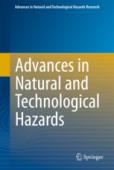This study synthesises insights from “Natural Capital Germany – TEEB DE,” with a particular focus on rural areas. The objectives of the TEEB (The Economics of Ecosystems and Biodiversity) study were to explore causes of the continued decline of ecosystem services and biodiversity and to introduce case studies exemplifying their economic significance in land use decisions. Building upon this analysis, key recommendations for policy, planning, and management are provided.
This study assesses multiple benefits (environmental, social, and economic) provided by a multi-purpose green infrastructure (a series of constructed wetlands surrounded by a park) in a peri-urban area and compare it with the alternative grey infrastructure and with the previous situation (a poplar plantation). The study area is located in Gorla Maggiore, a small municipality in northern Italy. A multi-criteria analysis was applied as a basis for integrated valuation.
This paper provides a framework that can be used for analyzing temporal dimensions of ecosystem services. It presents a case study that analyses the supply of three ecosystem services in a Dutch national park, the Hoge Veluwe, over a time span of around a century as well as the implications of temporal scales for ecosystem services valuation and ecosystem management.

This chapter of the Advances in Natural and Technological Hazards Research book series demonstrates applications of the InVEST (Integrated Valuation of Ecosystem Services and Tradeoffs) tool in data-deficient countries where UN Environment is currently implementing ecosystem-based field interventions to reduce disaster risk.
This pilot study addresses the cost-effective spatial development of a well-connected green infrastructure relevant to the integration of forest, agri-environment, and regional development policies.
This case study applies a contingent valuation approach to estimate how households value different multi-purpose infrastructure (grey or green) for managing flood risk and water pollution. It considers the case of the Gorla water park located north of Milan, in the Lombardy Region of Italy.
This report provides guidance on seeking information that supports the integration of ecosystem services into policy and public management.
This case study proposes a replicable methodology that can be used to identify and map green infrastructure elements at the landscape level, based on the notions of ecological connectivity, multi-functionality of ecosystems, and maximisation of benefits both for humans and for natural conservation. The method is applied in a continental scale analysis covering the EU-27 territory, taking into account the delivery of eight regulating and maintenance ecosystem services and the requirements of large mammals’ populations.
This study examines how ecosystem services can be valued and mapped and presents a case study for Central Kalimantan, Indonesia.
This case study combines a documentary‐historical method with a value‐critical approach to analyse Mongolia's social policy response to poverty.
